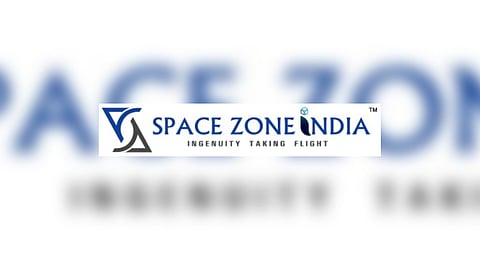

CHENNAI: A reusable hybrid rocket will be launched from Chennai shores on August 24, and will place three CubeSats and 50 PICO satellites in the sub-orbit. The satellites will monitor and collect data on various atmospheric conditions.
Space Zone India, a Chennai-based start-up which manufactured the rocket, claimed this would be India’s first reusable hybrid rocket that combines the advantages of both liquid and solid fuel propellent systems to improve efficiency and reduce operation costs. Named ‘Mission Rhumi -2024’, the project was guided by Mylswamy Annadurai, former ISRO director and Moon Man of India.
Anand Megalingam, CEO, Space Zone India, told TNIE that the launch will take place around 7 am from TTDC Ground on East Coast Road. “It will be a mobile launch using a hydraulic launcher mounted on a truck. All the necessary approvals from the government agencies, including NOCs from the DG of civil aviation, Air Force Tambaram, and AAI have been obtained. Additionally, we have initiated the Notice to Airmen (NOTAM) process.”
Explaining the advantages of hybrid rockets, Megalingam said, “Hybrid rockets use a separate oxidiser tank, which in this case is filled with semi-cryogenic nitrous oxide at -80°C. This oxidiser is stored separately from the solid wax fuel until combustion, ensuring enhanced safety. The solid wax fuel, housed in a separate tank, combines with the oxidiser only during the combustion process. This separation significantly reduces the risk of accidental detonation, making hybrid rockets inherently safer than their fully solid or liquid counterparts.”
On reusability, the official said the mission is environmentally sustainable as 70% of 80-kg rocket components can be retrieved and reused for future missions.
Close to 5,000 students, majority of them government students, were trained and provided hands-on experience on rocketry and satellite integration as part of this mission.
Mylswamy Annadurai told TNIE the technology is unique and such launches inculcate passion for rocketry among students. “For instance, the data retrieved from this mission can provide great insights for students studying atmospheric science.”
The three cube satellites are designed to monitor and collect data on atmospheric conditions, including cosmic radiation intensity, UV radiation intensity, air quality, and more. The 50 PICO satellites are dedicated to studying various aspects of atmospheric conditions such as vibration, accelerometer readings, ozone levels and toxic content, etc. “The data will be shared with the students, which will enhance their understanding of environmental dynamics,” Megalingam said. The project is funded by Coimbatore-based Martin Group.